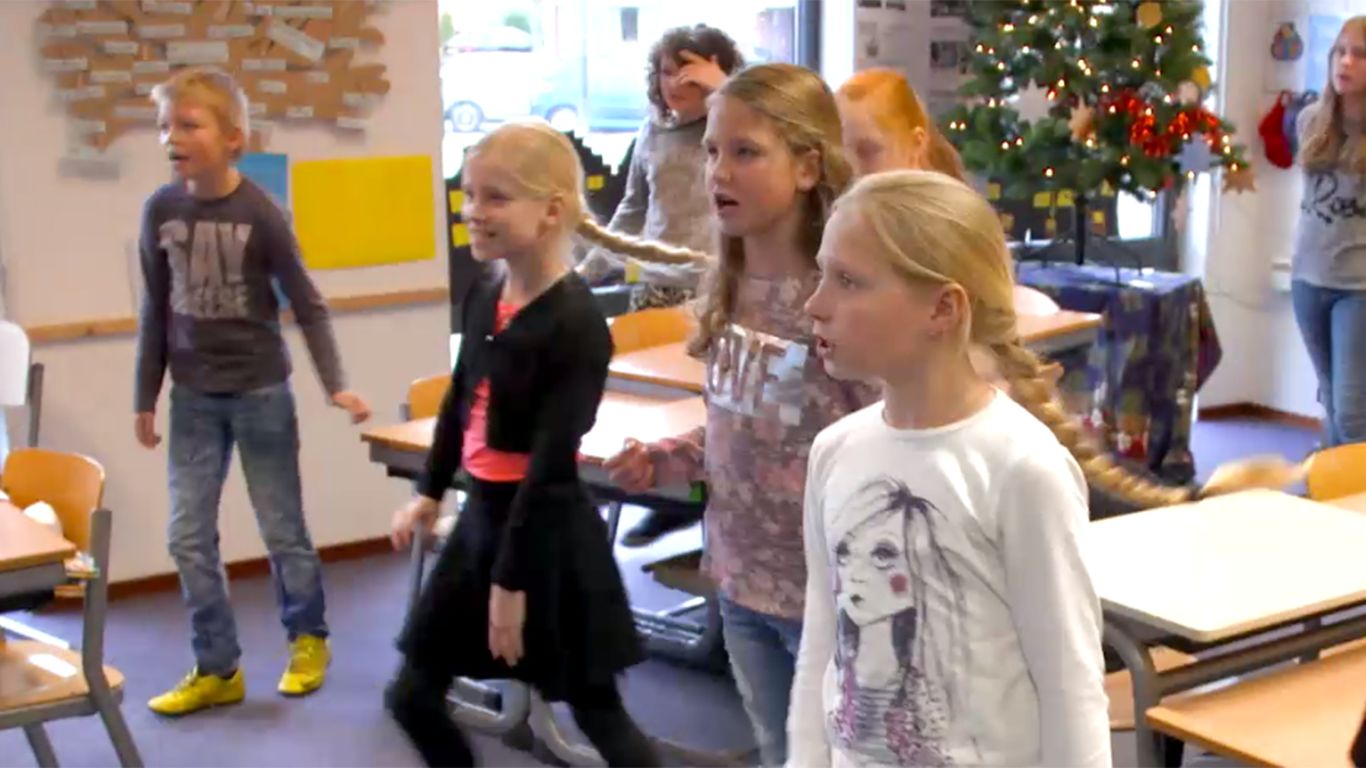Beter leren door te bewegen
Kinderen leren beter tijdens de reken- en taalles als ze bewegen. Dat blijkt uit onderzoek van promovenda Marijke Mullender-Wijnsma. Ze onderzocht de effecten van het programma Fit & Vaardig, waarbij fysieke activiteit op school geïntegreerd wordt in de les. Na twee jaar hadden de Fit & Vaardig-klassen vier maanden extra leerwinst voor rekenen en spelling in vergelijking met reguliere klassen.
Mullender-Wijnsma, die 19 januari promoveert aan de RUG, onderzocht de effectiviteit van de Fit & Vaardiglessen (F&V) bij vijfhonderd leerlingen van twaalf basisscholen. Kinderen die drie keer per week een F&V-les kregen gingen meer vooruit dan leerlingen die geen bewegingsoefeningen deden. In twee jaar liep de leerwinst in F&V-klassen voor rekenen en spelling op tot vier extra maanden in vergelijking met klassen die reguliere reken- en taallessen volgden. Dit positieve effect was voor rekenen ook ruim een half jaar na beëindiging van de F&V-lessen nog meetbaar.
De F&V-lessen bleken niet alleen een positief effect op reken- en taalprestaties te hebben. Na de lessen waarin leerlingen konden bewegen, waren ze geconcentreerder en meer taakgericht in de opvolgende les.
Meer informatie
- Marijke Mullender-Wijnsma
- Programma Fit & Vaardig op de basisschool heeft ook na twee jaar nog gunstig effect op spelling en rekenen

Video's RUG
Het online videomagazine Unifocus belicht wekelijks onderwerpen die annex zijn met de Rijksuniversiteit Groningen, op het gebied van onderzoek (en samenleving), studentenleven, onderwijs, beleid en internationalisering. Andere video's staan in onze videoportal.
Meer nieuws
-
17 februari 2026
Van ghostbuster tot rampenonderzoeker
-
03 februari 2026
‘Daar zit een goeie kop op’
-
20 januari 2026
Alcohol, appen en e-bikes
